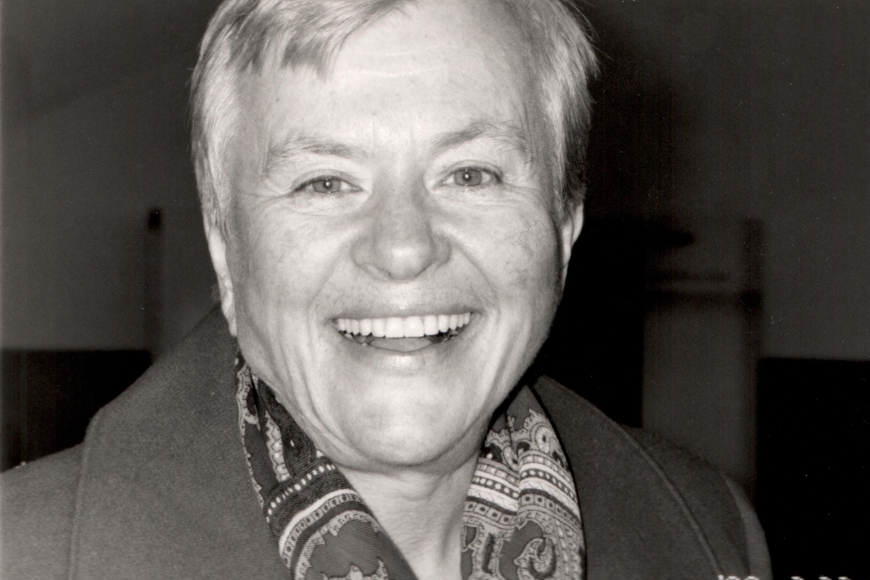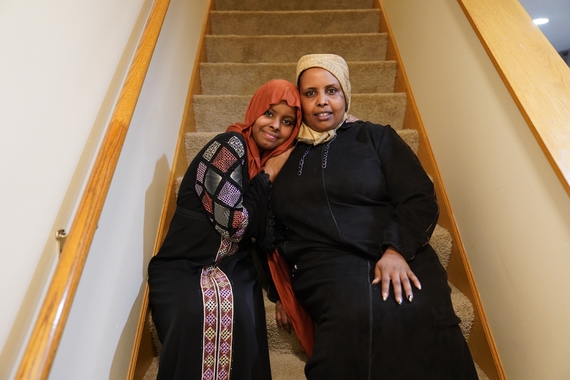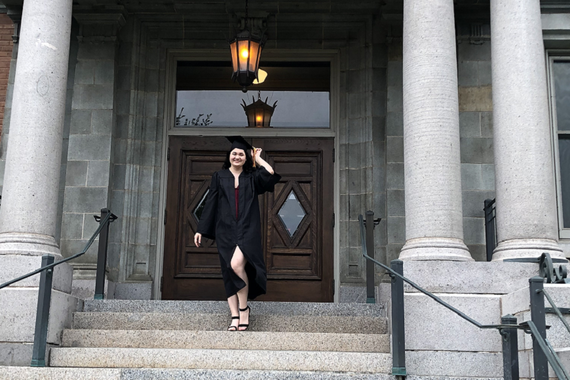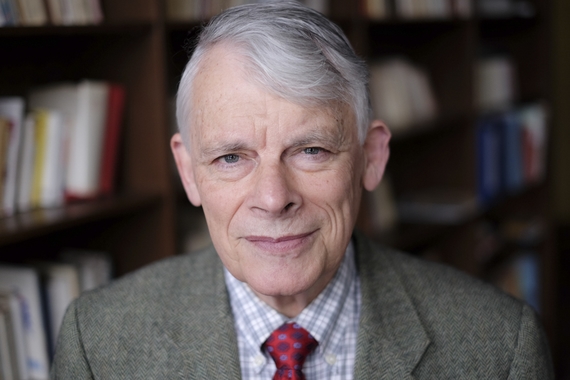In Memoriam: Evelyn Firchow
Evelyn Scherabon Firchow was born in Vienna on November 29th, 1932 and grew up in the Styrian mining town of Leoben, where her father was a lawyer and civil servant. At the age of 17 she embarked upon her studies at the University of Vienna, where she soon discovered a newly established exchange program to the United States. Always the bold adventurer, Evelyn applied and, in the autumn of 1951, sailed to America as a member of the first Austrian Student Fulbright cohort. At the University of Texas, Austin she enrolled in the Nuclear Physics program, then switched her major to German (BA 1953). Evelyn continued her studies in German at the University of Manitoba (MA 1956), while at the same time establishing a family with her first husband, Peter Coleman, raising her daughter Felicity, and teaching high school Mathematics. In 1957 she enrolled in the German Graduate Program at Harvard University and finished her PhD in 1962, after also spending a year at the University of Munich as a junior Humboldt Scholar and a short interlude in the US army as an instructor of German.
Evelyn’s first academic position was as Instructor, then Assistant Professor, of German at the University of Wisconsin, Madison. Here she reconnected with the love of her life, fellow scholar Peter Firchow, whom she married in 1969. In the same year she was promoted to full professor of German at the University of Minnesota (U of M), where she had become the department’s first female faculty member in 1965. Evelyn joined the profession when there were few women in the faculty ranks, and, as she often reminded me, they had to fight to be recognized and taken seriously. I remember her describing with joy and determination how victorious she had felt when she was finally allowed, in 1966, to eat in the hitherto exclusively male Harvard Faculty Club. Equal pay had also always been an issue. In the early 1980s, Evelyn successfully joined forces with other women scholars at the U of M to push through changes initiated by the Rajender Decree, a class action sexual discrimination lawsuit. She invested her settlement in a scholarly retreat in the northern Minnesota woods, a true locus amoenus literati, soon lovingly christened the “Fircoves.” Here she, her husband Peter, by this time a well-known University of Minnesota professor of English and Comparative Studies, and their daughter Pamina, now an Associate Professor at the Heller School for Social Policy at Brandeis University, could often be found when a repose from teaching allowed it. Friends, students and colleagues were always welcome and treated with the warmest hospitality. Research was the daytime agenda, with breaks, of course, for a stroll on the lakeside “Philosophen Weg,” or a foray into the forest to hunt for chanterelles and boleti; evenings were spent over good food and drink and in the exchange of ideas about literature, language, art, politics, world events and life adventures.
Evelyn’s research interests were broad and numerous: Old and Middle High German Studies, Text Editing and Paleography, German-American Studies, Old Norse Studies, Translation Studies, and the early field of Digital Humanities. In the late 1970s she founded a “clearinghouse” for computer-aided research in German Studies, and, over the last 40 years of her career she worked on various projects with U of M programmer Richard Hotchkiss to produce computer-generated concordances to the works of Notker Labeo and, later, Gottfried von Strassburg, all based on diplomatic editions that she meticulously prepared herself. They began on punch cards, moved to electronic tapes and eventually floppy disks, all at a time when personal computers were just beginning to adorn home-office desks. Evelyn’s first translation, which remains the standard Reclam edition, was from Latin into German: Einhard’s Vita Caroli Magni. Subsequently she published 6 additional book translations and numerous short stories, from German and Icelandic into English. Many of these were a team effort undertaken with her husband Peter; the last, quite appropriately Gottfried’s tale of timeless love Tristan, appeared just after his untimely death in 2008.
I first met Evelyn in an intermediate German language course in my sophomore year at the University of Minnesota. She was a formidable instructor under whose tutelage I think I finally got to understand German adjective endings! Up until her retirement 50 years after first arriving at the U of M, Evelyn continued to teach intermediate and advanced German in addition to her graduate courses. Indeed, her first two major publications were textbooks for this level, one devoted to teaching language through poetry, and the other through short stories. Her crowning pedagogical achievement, however, was the graduate Program in Germanic Philology, which she established in the 1970s with her colleague Cecil Wood. In the last 46-some years it has produced many medievalists and linguists now in the faculty ranks of German, Scandinavian and English departments. Evelyn was a champion of the field and devoted her career to defending and enhancing it. For her, Germanic Philology went beyond historical linguistics, encompassing a study of language, literature, culture and history and requiring an understanding of the larger Latin context; it was based on texts as they have been preserved and not embellished or prettified by modern editors.
Organization was one of Evelyn’s greatest talents (Peter often joked that she would have made an excellent Quartermaster General) and she used her skill to explore the world with her family. She spent many academic years abroad: as a Humboldt Scholar in Munich and later at the Universities of Marburg and also Tübingen, Germany; as a Fulbright Scholar at the University of Iceland; as a research fellow at the Institute for Advanced Studies at the University of Edinburgh; as an NEH and a DAAD Fellow, to name just a few posts. She was a guest professor at the University of Florida, Gainesville; The National Cheng Kung University, Taiwan; Julin University, China; the Universities of Graz and Vienna in Austria and the University of Bonn, Germany; her last stint was at the Universidad Nacional de Costa Rica, in San Jose, where Peter had family roots. Each visit forged new connections and friendships.
Professor Firchow died at the age of 87 on October 28th, 2020 after a long battle with dementia. Those of us who knew her well will never forget the inspiration that we received from her. In the words of Walter von der Vogelweide: “swes leben ich lobe, des tôt den wil ich iemer klagen” (‘I will always lament the death of one whose life I praise’)
Evelyn is survived by her daughter Pamina, son-in-law Fabrizio and three lovely grandchildren, Marta, Chiara and Isaia, as well as by her sister Heidi Scherabon.
--Professor Anna Grotans (Ph.D., University of Minnesota )
Department of Germanic Languages and Literatures, The Ohio State University



